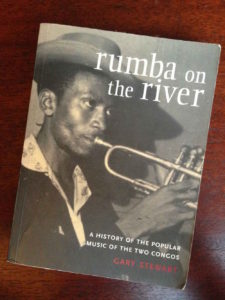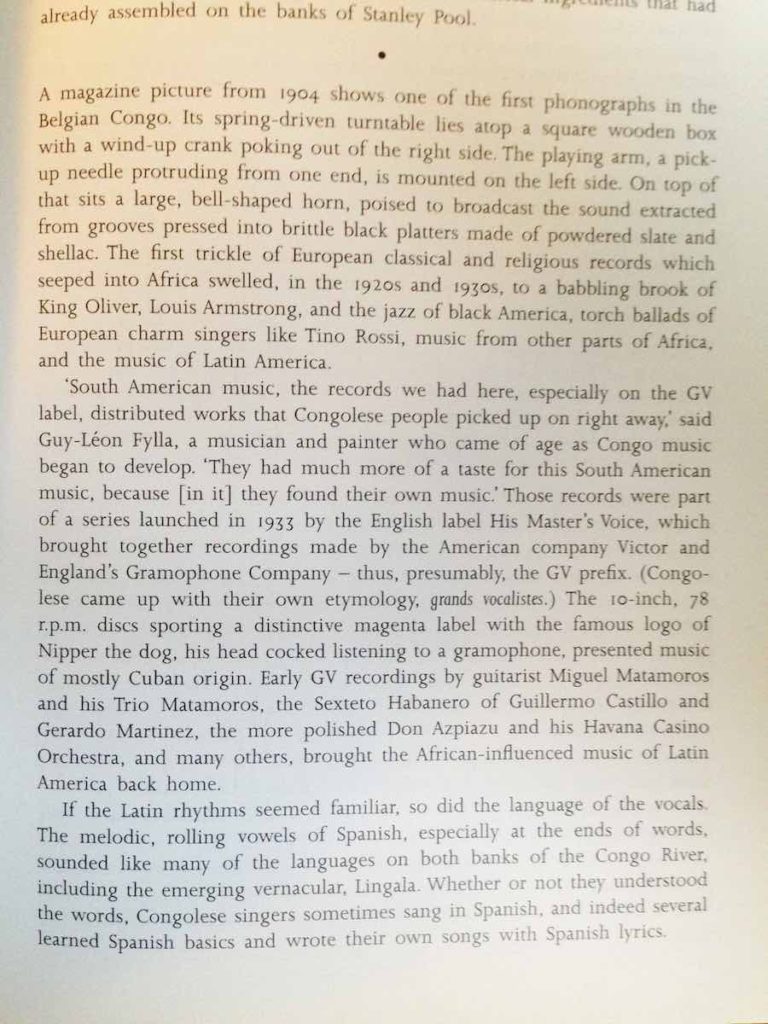This music I’m obsessed with, cavacha or soukous music, is from Zaire, now the Democratic Rebublic of the Congo, and its lineage like any other music can be traced as far into the past as you’re willing to dig. But the stuff I’m obsessed with is from the mid- to late-1970’s basically; I consider that time period the golden age of hard soukous music (by the way, most of the history I know surrounding this I gleaned from Gary Stewart’s excellent book Rumba On the River, the Congo music bible for uninitiated English speakers.

Stewart describes early in his book the phonograph becoming available to the Congolese and all the music of Cuba and South America migrating back across the Atlantic after centuries of a sort of exiled development in the west. Access to recorded music, and migrants from outside the cities, made the scene in Kinshasa and Brazzaville possible.
So, rumba happened, and got hugely popular, all over Africa. Often the genre was referred to as “Congo” music. It eventually grew to utilize large bands with multiple percussionists and electric guitarists, big horn sections and 3-5+ vocalists (the stars of the scene generally). The primary percussion instruments were maracas, bells and conga drums. Some big names such as African Jazz and OK Jazz reflect the Congolese affinity for the American term Jazz, even if their sound bore little resemblence to it. This Congo rumba music is often beautifully melodic, and there’s an absolute ton of it out there to discover. The scene thrived for decades.
Sometime in the early 1970’s (near as I can tell), the American drum set was introduced to Kinshasa, and almost overnight everything got driving, louder, and irresistibly danceable. Bands discovered Jimi Hendrix and James Brown (whose visit to Africa in 1974 is constantly cited as a watershed moment for African music), and everything took on a rock and roll quality, even using the backbeat at times.
This is the era I’m in love with. The marriage of the qualities of Congolese rumba with western rock music produced the best sounds I’ve ever heard. And though some people know the term “soukous,” I think the music of this era deserves to be heard more. So that’s my mission, on this site and through my own band.
OK, that’s more than enough for now
– Adam

